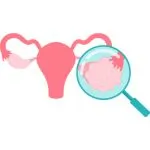Polycystic Ovarian Disease (PCOD) is a common hormonal disorder affecting millions of women worldwide, including many in Pune. In this blog, we will explore the essential components of a diet plan for PCOD, providing practical home made tips to help you manage this PCOD condition more effectively.
So, let’s get started with some introduction of PCOD condition.
What is PCOD (& PCOS) ?
PCOD
Polycystic Ovarian Disease (PCOD) is a condition often caused by a combination of hormonal imbalance and genetic tendencies.
In a typical menstrual cycle, the ovaries alternately release mature eggs ready for fertilization. However, in some cases, the ovaries frequently release immature or partially mature eggs, which can develop into cysts—small sacs filled with liquid. This condition is known as PCOD.
PCOD leads to the ovaries swelling and becoming enlarged leading to ovaries produce an excess of androgens (male hormones).
PCOS
Polycystic Ovarian Syndrome [PCOS] is a multifactorial disease, and most commonly seen in females of reproductive ages.
The prevalence rate is 5 to 15% based on the criteria of diagnosis.
The diagnosis of PCOS is based on having at least two out of three criteria-
- Chronic Anovulation: This means having irregular or absent menstrual periods
- Hyperandrogenism [Clinical or biological]: This involves higher levels of male hormones.
- Polycystic Ovaries: The presence of multiple small cysts on the ovaries.
PCOS is a serious condition. PCOD situation, on the other hand often improves with correct diet and exercise.
What are causes of PCOS?
Polycystic Ovarian Syndrome (PCOS) can be attributed to several physiological factors, with the primary causes being –
- Insulin Resistance: When the body's cells become resistant to insulin, it can lead to higher insulin levels, which can trigger increased androgen production by the ovaries.
- Impaired Gonadotropin Hormonal Synthesis: Abnormalities in the production of gonadotropins, hormones that stimulate the ovaries, can disrupt the menstrual cycle and lead to the development of ovarian cysts
- Excessive Body Fat Percentage: Higher body fat, especially around the abdomen, is linked to increased androgen levels and can exacerbate the symptoms of PCOS.
- Changes in Metabolic and Hormonal Pathways: Alterations in how the body processes and regulates hormones and metabolism can lead to the characteristic symptoms of PCOS.
Can These Causes Be Reduced by Following a Diet?
Yes, following a tailored diet can significantly help in managing and reducing the causes and symptoms of PCOS.
By addressing factors such as insulin resistance, hormonal imbalance, excessive body fat, and metabolic changes, a well-balanced diet can significantly alleviate symptoms.
Symptoms of PCOD
The presence and intensity of the symptoms can vary from individual to individual. A list of common PCOD symptoms is mentioned below-
The presence and intensity of the symptoms can vary from individual to individual. A list of common PCOD symptoms is mentioned below-

Feeling of fatigue or tiredness.

Excessive hairfall starting from the crown portion.

Weight gain or trouble losing weight.

Formation of ovarian cysts.

Irregular or delayed or missed periods.

Often mood swings conditions.
In addition to above, below are some common symptoms that are observed in PCOD Patients in Pune and other places in India –
- Excessive body hair growth
- Low sex drive
- Hair thinning
- Trouble conceiving or infertility issues
- Depressive and negative thoughts
- Anxiety issues
- Low energy levels
- Gut Dysbiosis
- Cystic Acne
How does a Diet plan for PCOD in Pune helps cures the condition ?

Diet plays a very important role in reversing PCOS & PCOD.
While low-calorie diets were once effective, current strategies emphasize Low GI and Low GL diets to reduce insulin resistance, fasting insulin levels, cholesterol levels, waist circumference, and testosterone levels.
Supplementing omega-3 fatty acids alongside a balanced diet and moderate physical activity can further decrease body fat percentage.
Additionally, a diet rich in fermentable fiber positively influences gut microbiota and helps regulate appetite hormones.
Adhering to a well-structured diet plan and healthy eating principles can significantly accelerate recovery from PCOD.
The Diet Plan for PCOD Treatment
- Low GI and GL diets: By focusing on foods with a low glycemic index (GI) and glycemic load (GL), this diet helps stabilize blood sugar levels, reducing insulin resistance commonly associated with PCOS. This can lead to better hormone regulation and improved menstrual cycles.
- Low to moderate caloric diet: Maintaining a balanced calorie intake helps in weight management, which is crucial for PCOS management. Excess weight can exacerbate hormonal imbalances and symptoms, so a controlled calorie intake aids in achieving and maintaining a healthy weight.
- High protein low fat diet: Protein-rich foods promote satiety and muscle building, which can aid in weight management and insulin sensitivity. By reducing fat intake, especially saturated fats, it helps in controlling cholesterol levels and decreasing inflammation, which are often elevated in PCOS
- High fiber diet: Fiber-rich foods like fruits, vegetables, and whole grains can help regulate blood sugar levels and improve digestion. They also promote a feeling of fullness, which can prevent overeating and aid in weight management. Additionally, fiber helps in eliminating excess estrogen from the body, which is beneficial for hormonal balance in PCOS.
The role of Water in Diet Plan for PCOD
Water is crucial for PCOS management as it aids in hormone regulation, weight management, and detoxification.
Proper hydration supports insulin sensitivity and helps alleviate symptoms like irregular menstrual cycles and acne. Additionally, staying hydrated promotes skin health by keeping it hydrated and aiding in toxin elimination.
Supplements required in the Diet Plan for PCOD/PCOS
Magnesium, Omega-3, L-carnitine, Berberine Supplements
These supplements address specific nutritional deficiencies and support various aspects of PCOS management. Magnesium helps regulate insulin sensitivity and supports metabolic function.
Omega-3 fatty acids have anti-inflammatory properties and support cardiovascular health. L-carnitine plays a role in energy metabolism and may help improve insulin sensitivity.
Berberine has been shown to improve insulin sensitivity and regulate menstrual cycles in women with PCOS.
Vitamin C
Vitamin C supplementation supports immune function and reduces oxidative stress, addressing inflammation common in PCOS.
Duration of Diet Plan for PCOD
The duration it takes to see improvements in PCOS symptoms can depend on various factors, such as:
- Consistency: How consistently someone follows the recommended diet and lifestyle changes.
- Individual Response: Everyone’s body responds differently to dietary changes.
- Severity of PCOS: The severity of PCOS symptoms can influence how long it takes to see improvements.
- Other Health Factors: Other health conditions or medications may impact progress.
In general, many individuals with PCOS may start to see improvements in their symptoms within a few months of adopting a healthier lifestyle. However, significant changes may take longer, possibly six months to a year or more.
Tips to regularly follow the Diet Plan for PCOD Treatment
1. Meal Planning
Plan your meals and snacks in advance, focusing on balanced portions of lean proteins, high-fiber carbohydrates, healthy fats, and plenty of fruits and vegetables to help regulate blood sugar levels and hormone balance.
2. Regular Eating Schedule
Aim to eat regular meals and snacks throughout the day to maintain stable blood sugar levels and prevent energy crashes, which can exacerbate PCOS symptoms.
3. Portion Control
Practice portion control to manage calorie intake and support weight management, which can help improve insulin sensitivity and hormone balance in PCOS.
4. Hydration
Stay hydrated by drinking plenty of water throughout the day to support metabolism and overall health.
5. Monitor Carbohydrate Intake
Be mindful of carbohydrate sources, opting for complex carbohydrates with a low glycemic index and glycemic load to prevent spikes in blood sugar levels.
6. Limit Processed Foods and Sugars
Minimize intake of processed foods, sugary snacks, and beverages, as they can disrupt hormone balance and exacerbate PCOS symptoms.
7. Regular Physical Activity
Incorporate regular physical activity into your routine, aiming for at least 150 minutes of moderate-intensity exercise per week to support weight management and overall health.
8. Mindful Eating
Practice mindful eating techniques, such as paying attention to hunger and fullness cues, to prevent overeating and promote a healthy relationship with food.
Conclusion about Diet plan for PCOD Treatment
PCOS is a multifaceted disorder impacting women’s hormonal balance and reproductive health.
At Balanced Bowls, our approach revolves around personalized nutrition interventions tailored to address insulin resistance, inflammation, and overall lifestyle factors.
By emphasizing a low-glycemic index diet, anti-inflammatory foods, and lifestyle modifications such as regular physical activity, Balanced Bowls aims to empower individuals with PCOS to manage their symptoms effectively and improve their quality of life.
Through education and personalized care, our goal is to support individuals in navigating the complexities of PCOS and achieving long-term health and well-being.
Dt. Ria Hawle is a distinguished Clinical Dietitian and Nutritionist based in Pune, renowned for her expertise in disease reversal, weight management, and specialized dietary plans.
With certifications as a Certified Diabetes Educator, Weight Management Expert, Organ Cleansing Expert, and a Low FODMAP diet specialist from Monash University, Melbourne, Australia, Ria brings a wealth of knowledge and practical experience to her practice.
Whether you’re seeking a diabetes diet, a weight loss plan, or specialized nutrition for a chronic condition, Ria Hawle’s Balanced Bowls offers the best dietary guidance accessible from areas like Aundh, Katraj, Kothrud, Baner, Hinjewadi, and Wakad.
Book a Quick Appointment at Balanced Bowls, Pune
Ready to take control of your health journey?
Book your personalized appointment today and start your path to wellness with Balanced Bowls now!



